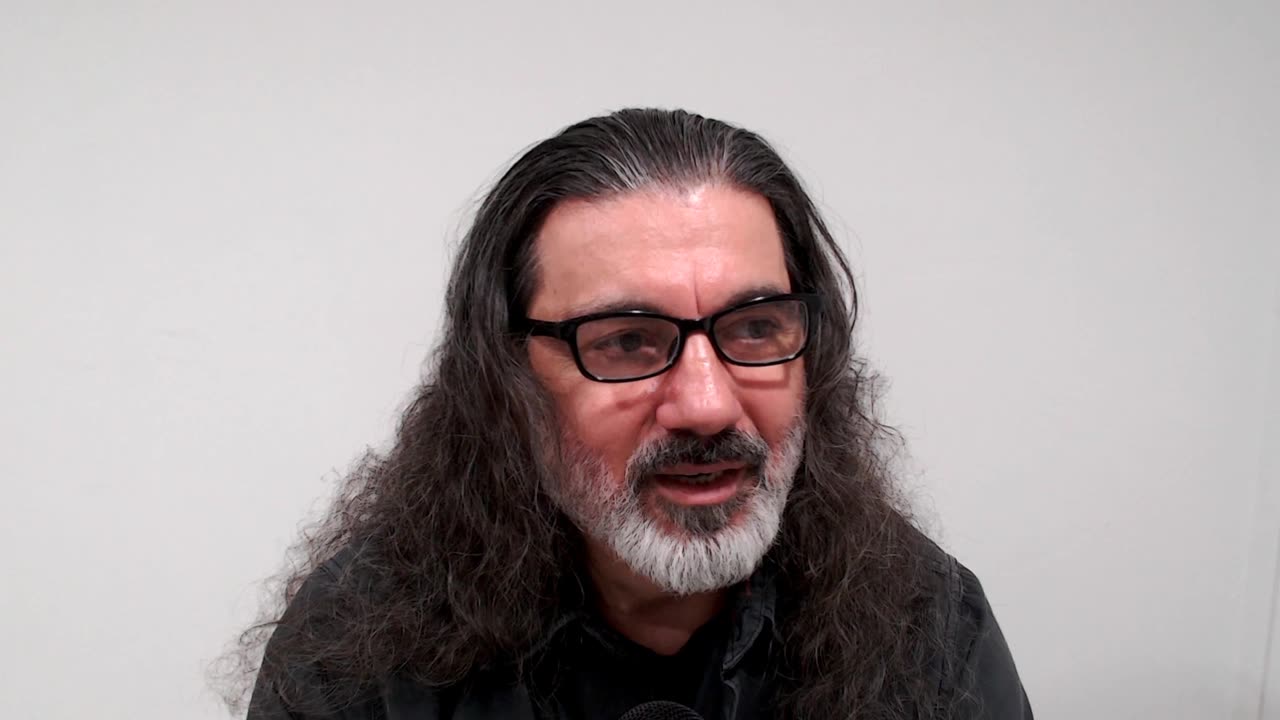Premium Only Content

Shooting From The Hip - 11 - Flow State, Autotelic, Mihaly Csikszentmihalyi
"Autotelic" derives from the Greek, formed from autos, (self) & telos (end, goal)-describes people who are internally driven, & who as such may exhibit a sense of purpose & curiosity.
Different from being externally driven by such things as: comfort, money, power, or fame - motivating force.
Mihaly Csikszentmihalyi: a Hungarian-American psychologist. He recognized & named the psychological concept of "flow", a highly focused mental state conducive to productivity. He was the Distinguished Professor of Psychology and Management at Claremont Graduate University.
Sports have been characterized as, as autotelic activities: largely because of the complete involvement of participants, they become immersed in the activity for it's own sake.
In his seminal work, Flow: The Psychology of Optimal Experience, Csíkszentmihalyi outlined his theory that people are happiest when they are in a state of flow - a state of concentration or complete absorption with the activity at hand & the situation. It is a state in which people are so involved in an activity that nothing else seems to matter.
The flow state is colloquially known as being in the zone or in the groove. The mental state in which a person performing some activity is fully immersed in a feeling of energized focus, full involvement & enjoyment in the process of the activity. In essence, flow is characterized by the complete absorption in what one does & a resulting transformation in one's sense of time.
Flow is the melting together of action & consciousness; the state of finding a balance between a skill & how challenging that task is. It requires a high level of concentration, however; it should be effortless.
6 factors of flow experience - These aspects can appear independently of each other, but only in combination do they constitute flow experience
1. Intense & focused concentration on the present moment
2. Merging of action & awareness
3. A loss of reflective self-consciousness
4. A sense of personal control or agency over the situation or activity
5. A distortion of temporal experience, as one's subjective experience of time is altered
6. Experience of the activity as intrinsically rewarding, also referred to as autotelic experience
description of "flow" experiences often use the metaphor of a water current carrying them along: 'It's like floating', carried on by the flow
10 characteristics of flow state
1. Attentional focus - the task, challenge has your complete attention. completely present. an effort required to break attention or to interrupt
2. Challenge - activity, action just right amount of difficulty. Too easy, risk distraction. Too challenging, risk being overwhelmed
3. Goal-oriented - activity, task must have a purpose, outcome to work towards
4. Feedback - an immediate sense of accomplishment
5. Personal control - sense of control over or the ability to influence things occurring around the individual
6. Timelessness - feeling lost in the activity - altered consciousness or perception of time. Time can speed up or slow down, the transformation of the sense of time a direct result of being completely present
7. Peace - flow creates the sense & feeling of calm - completely present during a task, without stress or worry, anxiety - less self-conscious the sense of peace lasts well beyond the flow experience, balances physiological state of stress hormones
8. Intrinsic motivation - the activity itself is rewarding for its own sake, passions, the things you love to do - ie. martial arts - The results are 2ndary to the task itself - an “autotelic experience.”
9. Disconnect from physical needs - 'flow state', 'the zone', produces temporary disassociation to physical discomfort, needs: thirst, exhaustion
10. Single-mindedness - multitasking disrupts flow state, prevents ability to get in the right state of mind
Working on a task that is engaging - but not so difficult as to be frustrating - lets our brains relax in an unusual way. When we are engaged in effortful focus, the brain’s central executive network (CEN) is engaged
FLOW STATE benefits physical & mental wellness - dopamine works in a significant way to influence human behavior. When we have positive experience something, dopamine helps us recognize something pleasant & encourages, motivates us to seek it again. It is the drive for many of our habits, cravings & impulses.
Out of balance dopamine levels, too little or too much. Can produce illness, physical & psychological. Physical ill or self-destructive behavior.
1. Higher productivity - People in a flow state typically correlates with peak performance. Due to the total complete & total attention
2. Increased satisfaction - high level of engagement in the flow, provides a strong sense of satisfaction & accomplishment
3. Improved emotional regulation - changes the relationships with our emotions. active pursuit of flow state becomes a positive alternative to unhealthy & unproductive coping mechanisms
-
 LIVE
LIVE
TheSaltyCracker
1 hour agoLefty Shoots Lefties at No Kings Rally ReeEEeeStream 06-15-25
21,748 watching -
 1:23:47
1:23:47
Mike Rowe
18 days agoAmerica's Favorite Villain Is Finally The Good Guy | Neal McDonough #437 | The Way I Heard It
10.5K10 -
 2:35:31
2:35:31
vivafrei
11 hours agoEp. 268: Minnesota Assassinations; SCOTUS Rulings; No Kings; Padilla FAFO! WW3 & MORE! Viva & Barnes
59.8K102 -
 LIVE
LIVE
MyronGainesX
16 hours ago $14.36 earnedIsrael Tries To Drag America To War, Mass Protests In US, And More!
3,544 watching -
 LIVE
LIVE
SpartakusLIVE
4 hours agoBig DADDY Spart wishes YOU a Happy Father's Day || Duos w/ @sophiesnazz
822 watching -
 LIVE
LIVE
Due Dissidence
10 hours agoIsrael STRIKES IRAN, Iran HITS BACK, Marandi OWNS Media Hack, Is This THE END of MAGA?
1,999 watching -
 2:12:15
2:12:15
Nerdrotic
3 hours ago $3.71 earnedChris Cottrell Interpreting the Geomorphology of Carolina Bays | Forbidden Frontier #105
16.5K2 -
 LIVE
LIVE
Spartan
1 hour agoPro Halo Player | Halo Infinite Ranked Arena into SWTOR and/or Gears Beta
25 watching -
 LIVE
LIVE
This is the Ray Gaming
31 minutes agoPushing for Rumble Creator Program
16 watching -
 LIVE
LIVE
Damysus Gaming
9 minutes agoDune: Awakening - Grinding for that Ornithopter - Guild Work! Drown in Some Spice!
6 watching